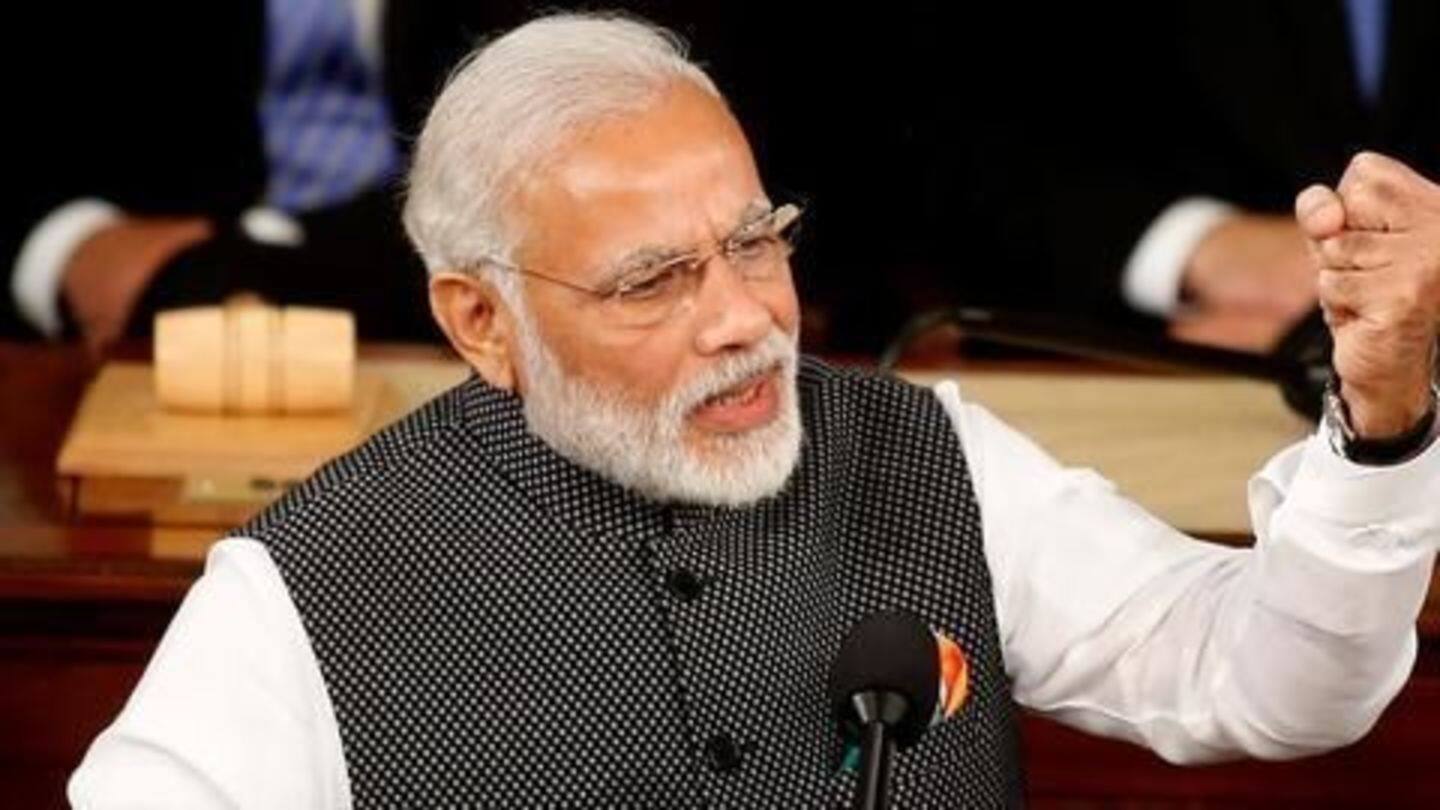
3 years of Modi's foreign policy: Achievements, obstacles and more
What's the story
Modi government has redefined India's foreign policy through expanded, active engagement with various countries. It has further made its presence felt at many international forums. While adopting a previously unseen confrontational approach against China's expansionist ambitions through opposing the One-belt One-road Initiative, it also sprung into action at times with surgical strikes against Pakistan. As he completes 3 years, let's understand his foreign policies!
Personality
Modi and India's foreign policy
A great deal of India's foreign policy transformation can be attributed to PM Modi's personal pro-activeness. Our approach to external engagements is largely defined by Modi's global outlook, underscored by linking domestic change to foreign policy. It has broadly been termed "The Modi Doctrine". Compared to his predecessor, Manmohan Singh, he enjoys domestic support, which has enabled him to easily achieve diplomatic gains.
About
The Modi Doctrine: Key priorities
Modi's approach is fundamentally structured around bringing security and prosperity to all Indians under the "India First" Policy. Recognizing that India's prosperity is linked to South Asian stability, "Neighbourhood first", policy intends to realize an integrated, well-connected neighbourhood. It further focuses on strengthening cultural ties, and engagement with the Indian diaspora. It also looks to take on greater international responsibilities becoming a "global rule-maker".
Quote
Essential features of India's external affairs according to PM Modi
These include: rebuilding connectivity in India's immediate and extended geographies; shaping relationships networked with India's economic priorities; making India a human resource power, creating Indian narratives on global challenges; reconfiguring global institutions, and spreading the benefits of India's civilizational legacies as a global good.
China Policy
Quiet to confrontational
While India never spoke against China's hegemonic ambitions before, it started doing so under the Modi government, through engaging with the Tibetan government in exile and even provoking China by hosting the Dalai Lama in Arunachal Pradesh . India also remained absent from China's OBOR summit citing sovereignty concerns. EU and Sri Lanka had echoed India's concern later, much to China's frustration.
Data
Strengthening economic relationship with China- A contrast
Despite rising tensions, India and China continue to work together on multiple areas. China is further the 17th largest contributor of Foreign Direct Investments to India, steadily climbing up from 28th and 35th positions in 2014 and 2011 respectively.
South Asia policy
South Asia minus Pakistan
Modi has used diplomatic, military and legal means to deal with a growing menace from Pakistan and found remarkable successes through victory in the Kulbhushan Jadhav case at the International Court of Justice. Surgical strikes were also conducted in Pakistan. Along with drawing international scorn upon Pakistan's home-grown terror, India also launched the SAARC satellite providing services to all South Asian countries except Pakistan.
Do you know?
Striving for South Asia minus Pakistan
Envisioning a South Asia minus Pakistan, India revived the BIMSTEC, a collective involving all south Asian countries except Pakistan. India has further extended a $4.5 billion line of credit to Bangladesh and is focusing on joint projects in Bangladesh and Sri Lanka.
Details
'Act East' and 'Link West'
Rechristening the earlier Look East Policy as Act East Policy, Modi government has bolstered diplomatic and military engagements with South east Asian states including Vietnam and Singapore and has gained from strategic partnership with Japan. India has further reached out to Arab countries including UAE, Qatar and Oman. India has also simultaneously engaged with Israel, managing to boost 'Make in India' in defence.
Information
Soft power and cultural diplomacy
India has effectively made use of its tag as the birthplace of Buddhism in diplomatic engagements with countries including Mongolia, Japan and Sri Lanka. Modi also effectively displayed India's soft power diplomacy when 21 June started to be celebrated worldwide as International Yoga Day.
Analysis
What now?
Modi's foreign policy has given India an image boost in the international arena. India further seems to have built and strengthened links in areas including Africa and Oceania. However, despite expanded engagement, India's core considerations are shaped by Pakistan and China. Moreover, India is purported to derive benefits out of numerous economic and defence deals, although the outcomes are still awaited on these.